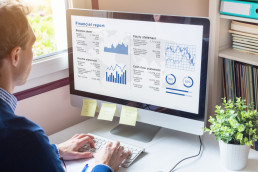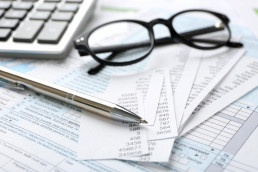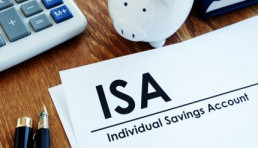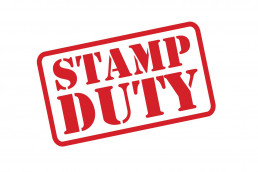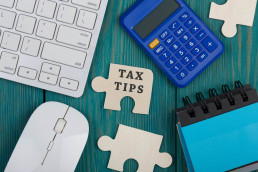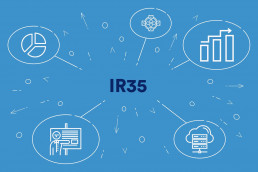This guide aims to help you understand Self Assessment.
 In the UK, PAYE and Self Assessment are the two ways in which people pay their income tax to HMRC. Under PAYE, your income is taxed at source, meaning your employer or pension provider deducts Income Tax and National Insurance contributions from your wages or pensions before they pay you.
In the UK, PAYE and Self Assessment are the two ways in which people pay their income tax to HMRC. Under PAYE, your income is taxed at source, meaning your employer or pension provider deducts Income Tax and National Insurance contributions from your wages or pensions before they pay you.
If your income is not taxed at source, have additional income through the year, if you believe you are not taxed correctly, or if you want to claim tax relief, then you are required to tell HMRC by sending in a Self Assessment tax return.
Who needs to send a Self Assessment?
Individuals who are required to file a Self Assessment tax return include:
- Those who are self-employed, aka sole traders
- A partner in a business partnership
- A minister of religion
- A trustee
- An executor or administrator of a deceased’s estate
- You’re a company director and your income is not taxed under PAYE
Even if you are on PAYE, you may need to complete Self Assessment if:
- You have additional income from property, investments and other sources
- You have taxable foreign income
- You have an annual income of over £100,000
- You or your partner receive child benefit and your income is over £50,000
- Your claims for expenses are over £2,500
- You have capital gains
There may also be other reasons as to why you need to send a Self Assessment tax return.
Important deadlines
In the UK, the tax year runs from 6 April to 5 April (in the following year) and here are some important dates:
31 January
Before midnight on 31 January, one of the followings may be applicable to you:
- File your tax returns online. There will be a penalty if you miss this dateline even if you have no tax to pay or have already paid the tax that you owe.
- Pay any tax you owe for the previous tax year.
- Pay your first payment on account. The term payments on account refers to advance payments towards your tax bill if you are self-employed.
- Pay your balancing payment if you still have tax to pay after you’ve made your payments on account.
- Amend the past tax return when you realise that an entry is incorrect.
6 April
6 April marks the beginning of a new tax year. There may be new tax rates and allowances coming into effect.
31 July
If you’re self-employed and you pay your taxes through payments on account, then before midnight on 31 July, you must pay the second payment on account.
A special note: Due to the Coronavirus pandemic, the deadline for the second payment on account for 2019/20 will not due on 31 July 2020. The deadline is moved to 31 January 2021.
5 October
If this is your first time submitting a Self Assessment, you must register by 5 October.
31 October
31 October is the deadline if you send a paper tax return to HMRC.
30 December
If you have incomes taxed under PAYE and you also file your Self Assessment, you can pay your Self Assessment bill through your PAYE tax code if:
- Owe less than £3,000 on your tax bill
- You submitted your paper tax return by 31 October or your online tax return by 30 December
What penalties exist for incorrect or late tax returns?
Each year, hundreds of thousands of people will either submit a Self Assessment tax return late or incorrect.
If you file your return late, the following penalties apply:
- £100 if you are one day late
- £10 for each additional day (capped at 90 days) plus £100 initial fine if you are up to 3 months late
- Either £300 or 5% of the tax due (whichever is higher), on top of the penalties listed above, if you are 6 months late
- An additional £300 or 5% of the tax due, plus the penalties listed above if you are 12 months late
You can estimate your penalty for late Self Assessment tax return on this gov.uk page.
If you make a mistake on your tax return, HMRC will determine whether you have been careless with your return or if you were trying to mislead them over how much tax you owe.
- No penalty if you have made an honest mistake
- 0% to 30% penalty if HMRC thinks you have been careless
- 20% to 70% penalty if HMRC thinks you have underestimated your tax on purpose
- 30% to 100% penalty if HMRC thinks you have underestimated your tax on purpose and tried to cover the fact
Berley can help with your Self Assessment tax return
Completing Self Assessment tax returns require a considerable amount of work and this is where Berley can help. Even if you intend to file your own tax return, it is wise to take professional advice as it is your responsibility to make sure that your tax return is accurate.
Our services include:
- Talking to your bank or any other relevant financial institution to get the information required for your annual return
- Calculating the amount of tax owed
- Completing and filing your tax return for you
- Offering you advice on when payments are due and how much you should pay
- Providing you with guidance on the types of records and information you need to keep
- Discussing any tax saving options with you
- Representing you if HMRC decide to investigate your accounts
Benefits of working with Berley
- We specialise in tax and we are knowledgeable about the changing tax obligations
- You can choose the level of support you need
- Our fees are affordable and transparent with no hidden charges
- We can help to resolve your late tax returns as soon as possible to minimise fines
- We are professional and diligent
Self Assessment is an area where we can take the pressure off you, so you can spend time on growing your business while we get busy collating, calculating and filing your Self Assessment tax return.
Give us a call today on 020 7636 9094 or use our Online Form to find out how Berley can help to take the stress out of Self Assessment.

